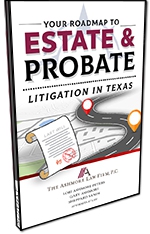The most important person you can choose to handle your affairs after your death is an Independent Executor.
.jpg) If you are appointed as an Independent Executor by the Court, you hold a significant amount of responsibility. Being an Independent Executor might seem like an uphill battle, but if you work with a qualified probate attorney, you will find the process to be easier than you think.
If you are appointed as an Independent Executor by the Court, you hold a significant amount of responsibility. Being an Independent Executor might seem like an uphill battle, but if you work with a qualified probate attorney, you will find the process to be easier than you think.
What is an Independent Executor?
An Executor is considered independent if the decedent died without a Will or if the decedent left a Will that specifically states that his Executor should be independent. When the Executor is independent, they are not dependent upon the Court for oversight and approval of all actions.
General Duties
1. Collect all assets
2. Pay off any debts
3. Distribute the estate assets according to the Will or according to Texas law
How to Become Qualified
In order to become an Independent Executor, you must become qualified. To become qualified, the two following things must be done:
1. Take an oath with the Court
2. File any bonds that may be required by the court
It’s important to know that the oath should be taken no later than 20 days from the date the court signed the order appointing you as Independent Executor. Once you have taken the oath and paid the bond, if one was required, then you can receive Letters Testamentary. These “Letters” are your proof that you are the person authorized to act on behalf of the estate. Contact your county court to find out where to order these letters.
Letters Testamentary
You will need to present Letters Testamentary to persons holding the assets of the estate so that they know you are the representative for the estate. Once you have collected all the assets, you then need to put a notice out to creditors.
Notice to Creditors
You are required to publish a notice to creditors in a newspaper printed in the county where the Letters Testamentary. This notice must be filed with the court within 30 days of receiving Letters Testamentary.
You also must give notice to all known secured creditors. A secured creditor holds a claim secured by a deed of trust, a mortgage or some other lien on a property. This notice must be filed with the court within 60 days of receiving Letters Testamentary. Because these notices have specific requirements, you should seek the assistance of a qualified attorney in preparing and sending these notices.
Notice to Beneficiaries
You must give a notice to each beneficiary named in the Will within 60 days of the date the Will was probated. Within 90 days you must file an affidavit or certificate with the court that confirms notice was given to beneficiaries.
Inventory or Affidavit in Lieu of Inventory
An Inventory or an Affidavit in Lieu of Inventory are documents that list the assets in the estate, the value of each asset as of the decedent’s date of death, and a list of all claims due and owing to the estate. These documents must be submitted to the court within 90 days of your qualification.
Taxes
The U.S. Estate Tax Return Form 706 must be filed 9 months after the decedent’s death. You are able to request an extension if needed. Taxes are especially important for larger estates. Your attorney can assist you in making sure the correct forms are filed.
Asset Management & Distribution
As an Independent Executor, you have a duty to keep estate assets segregated from your personal assets. You should never put estate property in your personal bank account or commingle estate assets with your own personal assets.
When you are ready to distribute the estate assets, you should review the Will carefully and distribute the assets exactly as the Will states.
Last Illness and Funeral Expenses
An Independent Executor may use the estate funds and may even sell estate property to pay funeral expenses and expenses of last illness. It is important to consult with an attorney before paying any of these expenses.
Closing the Estate
The estate is ready to be closed when the following have been completed:
1. You have gathered all assets of the estate
2. Inventory has been approved
3. You have paid all debts and taxes
4. You have determined who is entitled to the remaining property
As you can see, being an Independent Executor is not an easy job. It is essential that you retain a qualified probate attorney to help you through this process.
Do You Need To Speak With An Experienced Probate Lawyer In The Dallas Area?
If you need to speak to an experienced probate lawyer please contact us online or call our Dallas office directly at 214.559.7202. We help clients throughout the Dallas area with all of their probate needs and look forward to helping you.


